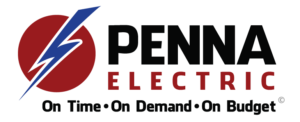EV Charger Installation: How To Install It At Home & Why
Many electric vehicle owners conduct over 80% of the car charging at home, as residential charging has proven to be inexpensive and highly convenient. Most areas provide low, stable residential electricity rates, especially overnight, also known as off-peak, which means charging your EV in a single-family home garage or driveway can be cheaper than running your AC throughout the year.
The Department of Energy states that “based on the national average of 12.6 cents/kwh, fully charging an all-electric vehicle with a 100 mile range and depleted battery would only cost about the same as operating an average central air conditioner for six hours.” Not only that, but in California, as in many other parts of the country, there are special incentives, such as rebates and tax credits for EV owners. You can learn more about it from the Vehicle Technology Office.
How To Install an EV Charging Station At Home?
An electrical vehicle comes with a Level 1 charger, which is a regular cord that uses a standard plug. However, since you can easily plug it in any 120V wall outlet, the charging can be slow and not deliver a great driving range. Hence, many electric car owners quickly upgrade to a level 2 EV charger, which uses 240 volts of electricity, and requires special installation. Before you get in touch with a qualified electrician for the actual installation, there are a few things to take into account in regard to your level 2 EV charger.
Factors to Consider When Installing an EV Charging Station
- Charging speed: before starting the installation process, it’s worth thinking about how much faster of a charge you need. If all you need is to charge your vehicle overnight, or your car is a hybrid with limited electric range, then you might not need a very fast charger. This will help with choosing the make and model of the level 2 EV charger.
- Circuit size: the capacity of your electrical circuit will impact the size of the charging station you’ll need. Your charging rate should be about 80% of the circuit’s capacity, otherwise you’ll flip the circuit breaker. Not only that, but charging at slower rates will improve efficiency, as the lost electricity, also known as line loss, is proportional to the square of the current and inversely proportional to the wiring capacity.
- Amperage: this is an important factor to consider, as Level 2 chargers come in different amperages. The lower amperage charger is fine for most hybrids or small range electrical vehicles, but you’ll need at least 40 or 50 amps for faster charging speeds.
- Location: whether you’re thinking of installing your EV charging station in your garage or out in the driveway, cord length is something to be considered. This is also impacted by the length of the car and where the charge port is. There are generally indoor only chargers and indoor/outdoor ones, which are hardwired.
- Features – some of the most common features EV owners look for in a charging station are durability, a long charging cord, charging speed, and cost. If your parking space is outside, then you’d also want a charging station that’s outdoor rated. If the vehicle doesn’t have the function to control charging time, then this is another feature you might want to look for in the charging station. This is especially useful if your power company offers low rates for off-peak times.
Ensure a Safe Installation
An EV charger installation should always be done by a professional, qualified electrician. They should be able to assess your situation based on what wiring your house has or what specific type of plug you have, and ensure a proper and safe installation. It is an additional expense on top of the cost of the charging station, but you’ll keep your home safe from electrical fires.
A professional electrician will also be able to identify whether you have the proper electrical system to handle the extra load of a charger. If that’s not the case, then you might need to install a new breaker panel and meter. If you’re installing the charging station in the garage, the electrician will also check the wiring to make sure it’s not too old, in which case it might need replacing too. An electrician though will be up to speed with the National Electrical Code Article 625, which covers the rules for EV-charger installation, providing guidelines as to where a charger can be mounted and the type of wiring that’s required. They’ll know all the state and local codes too.
Level 2 EV Charging Station Installation
As mentioned above, the level 2 charging station requires 240 volts, which means the electrician will need to attach a double-pole circuit breaker to 2 of the 120 volt buses. This is done using a 4-strand cable and will double the circuit voltage. Here are the main steps involved in the wiring and installation:
- A ground wire is attached the ground bus bar;
- A common wire is attached to the wire bus bar;
- 2 hot wires are attached to the double-pole breaker
- A double-pole breaker is installed in your existing electrical panel with the 4-strand cable;
- The cable is ran to the charging location (the 4-strand cable needs proper insulation and needs to be correctly secured in order to prevent damage);
- The charging station is mounted on the wall and the 240 volts cable is attached
The EV charger installation by a professional electrician can cost anywhere between $500 and $1,200 depending on who you work with, as well as your environment and whether rewiring is needed or not.
Reasons To Install An EV Charging Station At Home
As said, a level 1 EV charger is good enough if your electric car has a limited range or you don’t drive it that much anyway. However, there are many reasons why installing a level 2 EV charging station at home is a good idea:
- Faster charging times – you’ll be able to charge your car a lot faster and enjoy quicker response, which can save you a lot of time and therefore money.
- Convenience & flexibility – if you have a wall-mounted charging station at home to charge your car overnight, then you can conveniently keep your level 1 charger in the car at all times, which gives you the flexibility to charge your car on the go wherever you are.
- Monetary incentives – there are significant rebates and utility discounts that can make the investment very affordable and worthwhile.
- Scalability – installing an EV charging station at home allows for greater movement when it comes to the electrical needs of your vehicle, and if in the future you add a second electric car to the household, the charging station will come in handy.






